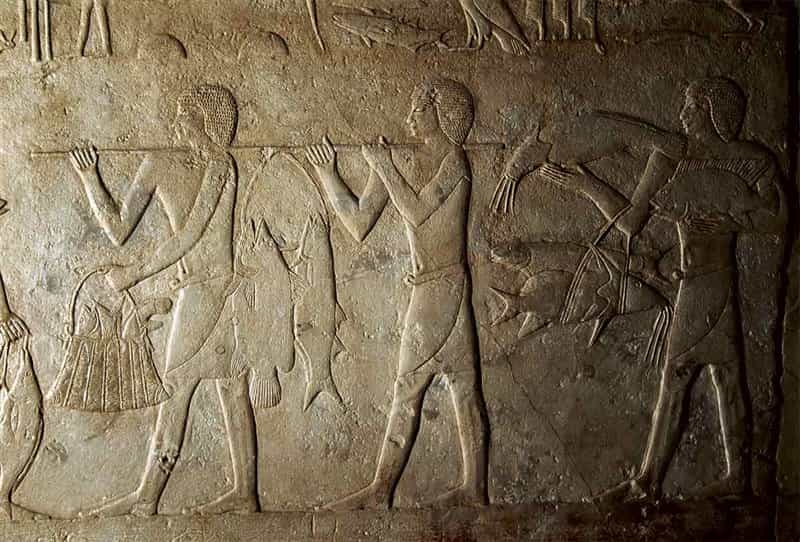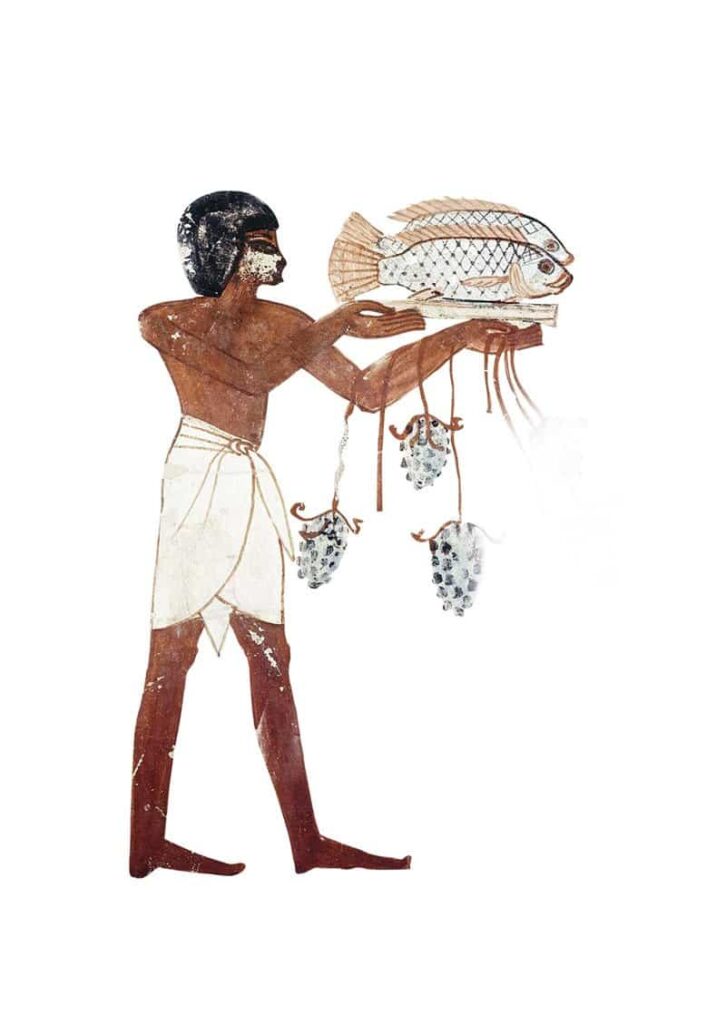In the era of the Pharaohs, fishing held great significance in Egypt. The Nile was abundant with various fish species, ranging from the smallest to the largest. Hieroglyphs, paintings, and bas-reliefs attest to the pivotal role of fishing in Egyptian civilization.
Herodotus remarked, “On the banks of the Nile, nearly everyone possesses a net. After catching them, they are gutted, sun-dried, and consumed after this simple preparation. During the summer heat, when the Nile waters cover the land, Egyptians fish in areas previously plowed; once the waters recede, the remaining fish in the mud become the fishermen’s prey, forming a kind of second harvest.”
Hieroglyphs and bas-reliefs readily illustrate the techniques and tools utilized for fishing along the Nile in ancient Egypt.
Depictions of angling, whether directly handheld or using fishing rods, abound, indicating that fishing wasn’t merely for sustenance but also served as a recreational activity, especially among the upper echelons of ancient Egyptian society.
Some paintings portray an individual seated at the rear of a boat, holding a fishing rod, while attendants surround them to provide fanning. The oldest discovered ancient Egyptian hooks were crafted from copper and lacked a barb but featured an eyelet for attaching the line.
Substantial reels unearthed in tombs were likely employed for winding lines used in harpoon or spearfishing, techniques also commonly utilized. However, it appears that the Egyptians primarily relied on nets and traps when capturing significant quantities of fish.
They seemingly innovated various net forms, many of which are still in use today. These contraptions are easily identifiable in tomb paintings.
The Egyptian antiquities department at the Louvre Museum houses numerous fishing scenes, exhibiting different net types, as well as angling, depicted in bas-reliefs, wall paintings, and papyrus scrolls.
As an agrarian society, the Egyptians held little interest in maritime pursuits. The Nile and its Delta furnished an abundance of fish, fulfilling their needs.








